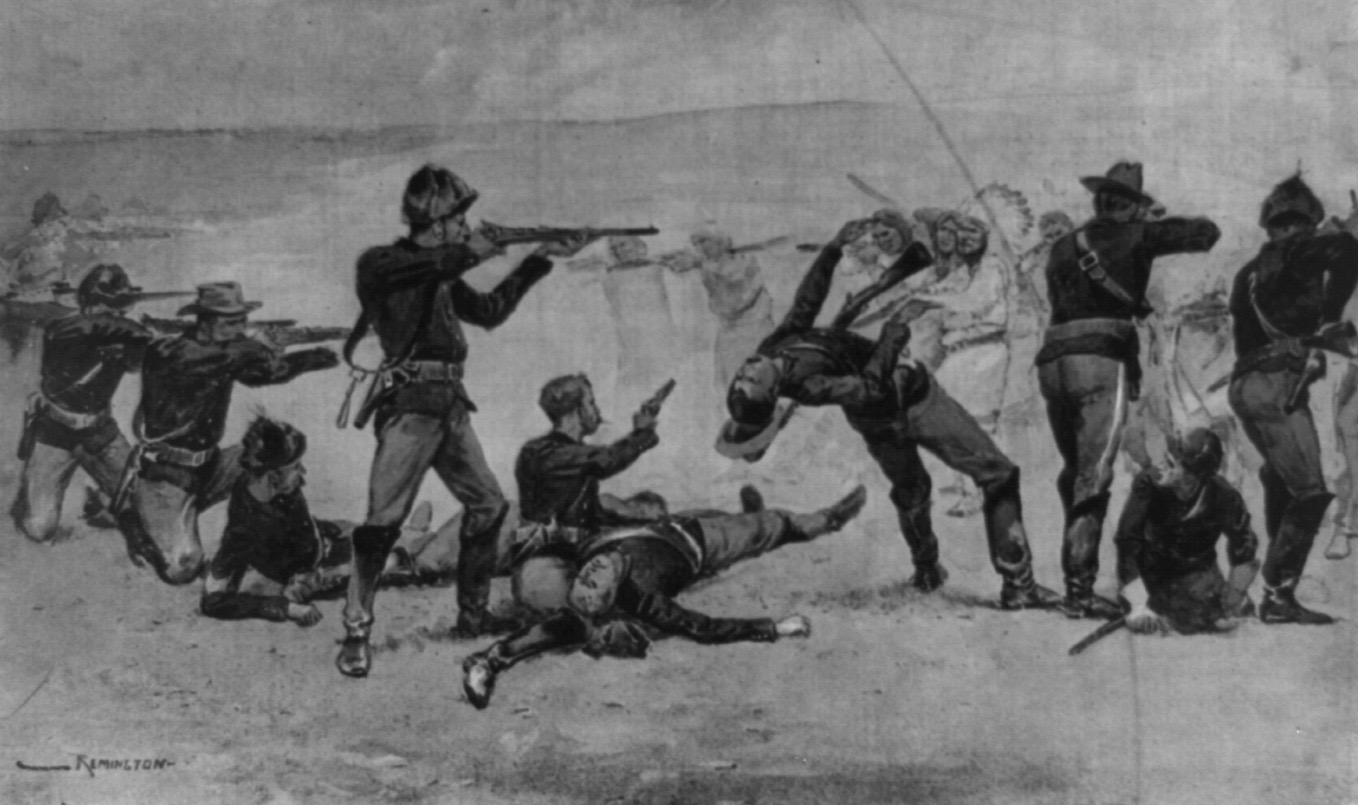In November 2019 Senators Elizabeth Warren (D-Mass.) and Jeff Merkley (D-Ore.) introduced the Remove the Stain Act, which seeks to strip the Medal of Honor from 20 soldiers who received the award for their actions in battle at Wounded Knee, South Dakota, on Dec. 29, 1890. Warren called it “a step toward righting wrongs against native peoples.”
Wounded Knee was the final controversial battle between the United States and Plains Indians during an intermittent war that had persisted more than three decades after the Civil War.
The legislation points to the scale of slaughter in the battle turned massacre, where upward of 250 Sioux—two-thirds of whom were women and children—were killed by U.S. troops commanded by Colonel James W. Forsyth of the 7th U.S. Cavalry. Twenty-five soldiers were killed and 39 wounded (six mortally) in the engagement. A look at the citations supporting the 20 MOHs awarded at Wounded Knee reveal rather lax standards of the era, unlike the far more stringent requirements adopted since the end of World War I.
The citations include:
Musician John E. Clancy: The President of the United States of America, in the name of Congress, takes pleasure in presenting the Medal of Honor to Musician John E. Clancy, United States Army, for extraordinary heroism on 29 December 1890, while serving with Company E, 1st U.S. Artillery, in action at Wounded Knee Creek, South Dakota. Musician Clancy twice voluntarily rescued wounded comrades under fire of the enemy.
Clancy was court-martialed eight times during his career. Twice between the fight at Wounded Knee and the receipt of his medal. Clancy was later dishonorably discharged in 1894.
Private Mathew Hamilton: Bravery in action.
That is all Pvt. Hamilton’s citation reads, as do a majority of others. According to the Nebraska Historical Society, Pvt. Hamilton’s citation stemmed from “conspicuous bravery in rounding up and bringing to the skirmish line a stampeded pack mule.” Company G was not even in the direct line of fire, and it appears that “Hamilton was awarded the Medal of Honor for riding away from the fighting.”
First Sergeant Jacob Trautman: The President of the United States of America, in the name of Congress, takes pleasure in presenting the Medal of Honor to First Sergeant Jacob Trautman, United States Army, for extraordinary heroism on 29 December 1890, while serving with Company I, 7th U.S. Cavalry, in action at Wounded Knee Creek, South Dakota. First Sergeant Trautman killed a hostile Indian at close quarters, and, although entitled to retirement from service, remained to the close of the campaign.
Trautman appears to have partly received the award for reenlisting.
Twenty of the nearly 500 7th Cavalry troopers who fought at Wounded Knee were awarded the Medal of Honor. To put that into context, consider the Battle of Antietam, the bloodiest single-day battle in U.S. history, which yielded the same number of Medal of Honor recipients. On D-Day some 73,000 Americans stormed the shores of Normandy, France; just 12 were awarded the medal. And during the past 18 years of the Global War on Terrorism? Twenty-three medal recipients.
That said, Doug Sterner, author and owner of the website Home of Heroes—a comprehensive database of U.S. military valor awards—cautions against judging the brief citations from Wounded Knee, stating that many similar citations from the Civil War on through the Spanish-American War similarly lack a wealth of detail. Such abbreviated citations, he says, can belie true valor in action. Sterner argues that heroism under fire is still, in fact, heroism under fire; the nature of the circumstances does not take away the valor of the individuals, regardless of how many Americans have come to perceive Wounded Knee.
Sterner is also critical of the idea that civilians, not the military, might decide who should or should not receive the Medal of Honor. While military reviews of the award have gone on throughout the 20th century, a reevaluation by Congress could be unprecedented.
In 1990 Congress issued a formal apology for actions taken at Wounded Knee, professing “deep regret on behalf of the United States to the descendants of the victims and survivors and their respective tribal communities.” However, no reparations were made.
In 1997 and again in 2001, the National Congress of American Indians passed resolutions requesting the U.S. government strip those awarded for their actions at Wounded Knee. The Remove the Stain Act once again seeks to overturn the medals awarded for that controversial action.
For the full list of Medal of Honor recipients:





